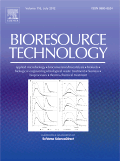
Biotechnology for Biofuels
Scope & Guideline
Connecting science and sustainability for a biofuel revolution.
Introduction
Aims and Scopes
- Biomass Conversion and Utilization:
Research dedicated to the efficient conversion of various biomass types into biofuels, exploring enzymatic hydrolysis, fermentation processes, and metabolic engineering of microorganisms. - Microbial and Enzymatic Innovation:
Focus on the development and application of novel microbial strains and enzymes to improve yield and efficiency in biofuel production, including the engineering of oleaginous microorganisms. - Sustainable Practices in Biofuel Production:
Exploration of sustainable approaches to biofuel production, including life cycle assessments, waste valorization, and integrated biorefinery concepts. - Genetic Engineering and Synthetic Biology:
Studies aimed at enhancing biofuel production through genetic modifications and synthetic biology tools, including CRISPR/Cas9 applications and metabolic pathway engineering. - Environmental and Stress Adaptation Mechanisms:
Investigating the physiological and biochemical responses of microorganisms to environmental stresses to improve biofuel yield and process resilience.
Trending and Emerging
- Metabolic Engineering of Microorganisms:
An increasing number of studies are focusing on the metabolic engineering of various microorganisms, particularly yeast and bacteria, to enhance their biofuel production capabilities, indicating a trend towards more complex genetic modifications. - Integrated Biorefinery Concepts:
Research is trending towards integrated biorefinery systems that not only produce biofuels but also generate value-added products from biomass, showcasing a holistic approach to biomass utilization. - Utilization of Non-Conventional Feedstocks:
There is a growing interest in the use of non-conventional feedstocks, such as agricultural and industrial waste, for biofuel production, highlighting the need for sustainable practices in feedstock selection. - CRISPR and Gene Editing Technologies:
The application of CRISPR and other gene editing technologies is emerging as a prominent theme, facilitating targeted modifications in microbial genomes to improve biofuel production traits. - Synergistic Microbial Consortia:
Research is increasingly exploring the potential of microbial consortia that leverage the metabolic capabilities of multiple species to enhance biomass degradation and biofuel yield.
Declining or Waning
- Traditional Fermentation Techniques:
While fermentation remains a key aspect of biofuel production, the emphasis on conventional fermentation techniques is diminishing as newer, more efficient methods and engineered strains gain prominence. - Single Microorganism Approaches:
The trend is shifting away from studies focused solely on single microbial strains. Instead, research is increasingly favoring consortia and multi-species systems that demonstrate enhanced synergies for biofuel production. - Basic Biomass Characterization Studies:
There is a noticeable decline in publications that solely characterize biomass without linking to practical applications in biofuel production, as the focus shifts toward integrated approaches that involve conversion processes.
Similar Journals

PROCESS BIOCHEMISTRY
Fostering collaboration in the realm of biochemical sciences.PROCESS BIOCHEMISTRY is a premier journal published by Elsevier Science Ltd, dedicated to advancing the field of biochemistry, microbiology, and bioengineering. With an ISSN of 1359-5113 and an E-ISSN of 1873-3298, this renowned journal is recognized for its impactful contributions, as demonstrated by its Q2 ranking in Applied Microbiology and Biotechnology, Biochemistry, and Bioengineering categories as of 2023. Covering a wide array of topics since its inception in 1950, PROCESS BIOCHEMISTRY serves as a crucial platform for researchers and professionals to disseminate innovative findings and develop new insights in enzyme technology, metabolic pathways, and bioreactor design. Although the journal operates under a non-open access policy, it remains vital for those engaged in cutting-edge biochemical research and development. Located in the United Kingdom, it continues to facilitate scientific discourse and foster collaboration among industry experts and academic scholars worldwide.

JOURNAL OF MICROBIOLOGY
Empowering researchers to shape the future of microbiology.JOURNAL OF MICROBIOLOGY, published by the Microbiological Society Korea, is a prestigious peer-reviewed journal dedicated to the advancement of knowledge in the fields of microbiology, applied microbiology, and biotechnology. Established in 1996, this journal serves as a vital platform for researchers and professionals from around the globe to disseminate their findings and engage in multidisciplinary discussions pertaining to microbial sciences. With an H-index that reflects its impact, the journal holds a commendable Q2 ranking in key categories including Applied Microbiology and Biotechnology, as well as Medicine (Miscellaneous), which underscores its significance in the academic community. Despite being a subscription-based journal, the JOURNAL OF MICROBIOLOGY aims to contribute to the understanding of microbial processes and their applications, facilitating advancements that are essential in health, industry, and environmental sciences. Researchers, students, and practitioners are encouraged to explore this rich resource for the latest research and trends in microbiology.

Biotechnology Journal
Driving excellence in applied microbiology and biotechnology.Biotechnology Journal, published by WILEY-V C H VERLAG GMBH, stands at the forefront of biotechnological research and innovation, recognized for its significant contributions to the fields of applied microbiology, molecular medicine, and broader biotechnology. With its ISSN 1860-6768 and E-ISSN 1860-7314, this journal has achieved impressive 2023 quartile rankings, positioning itself in Q1 for both Applied Microbiology and Biotechnology and Medicine (miscellaneous), and Q2 in Molecular Medicine, showcasing its impact and relevance within the scientific community. Based in Germany, the journal aims to disseminate high-quality research that drives advancements in biotechnological applications, fostering a platform for researchers, professionals, and students to engage with cutting-edge developments. With its ongoing commitment to excellence, the Biotechnology Journal is an essential resource for those seeking to stay informed about the latest trends and innovations in biotechnology.

METABOLIC ENGINEERING
Empowering Researchers to Engineer Tomorrow's SolutionsMETABOLIC ENGINEERING, published by Academic Press Inc. Elsevier Science, is a renowned journal in the fields of Applied Microbiology, Biotechnology, and Bioengineering. With an impressive impact factor and ranking in the top quartile (Q1) across its specialized categories for 2023, this journal facilitates the dissemination of cutting-edge research focused on metabolic pathways and engineering methods that optimize biological systems for various applications. Since its inception in 1999, it has established itself as a critical resource for academics and industry professionals seeking innovative solutions to complex biosynthetic challenges. The journal invites original research, reviews, and technical notes that advance the understanding and utilization of metabolic processes; thus, it plays a pivotal role in bridging laboratory discoveries with practical applications. Although the journal does not offer open access, its high visibility and rigorous peer-review process ensure that it remains a vital source of knowledge and inspiration for researchers and students alike.

JOURNAL OF INDUSTRIAL MICROBIOLOGY & BIOTECHNOLOGY
Fostering Knowledge and Innovation in Microbial ApplicationsJOURNAL OF INDUSTRIAL MICROBIOLOGY & BIOTECHNOLOGY, published by Oxford University Press, is a vital resource for researchers and professionals actively engaged in the fields of applied microbiology, biotechnology, and bioengineering. With an ISSN of 1367-5435 and E-ISSN of 1476-5535, this journal has established itself as a leading platform for disseminating innovative research findings and advancing knowledge in industrial microbiology since its inception in 1996. As of 2023, it is classified in the Q2 quartile across multiple categories including Applied Microbiology and Biotechnology, Bioengineering, and Medicine, underscoring its significance in the academic community. Notably, it ranks 26th of 127 in Applied Microbiology and Biotechnology, placing it in the 79th percentile, indicative of its high impact and influence. Although it does not currently offer Open Access, it remains a key outlet for high-quality scholarly articles that align with the objectives of improving industrial practices through biotechnological applications. For those interested in the latest developments and methodologies within the realm of applied microbiology and biotechnology, this journal serves as an indispensable reference.

CRITICAL REVIEWS IN BIOTECHNOLOGY
Transforming Research Through Critical AnalysisCRITICAL REVIEWS IN BIOTECHNOLOGY, published by Taylor & Francis Ltd, stands as a leading journal in the field of biotechnology, consistently recognized for its rigorous peer-reviewed articles that impact the disciplines of Applied Microbiology, Biotechnology, and Medicine. With an impressive Q1 ranking in these categories and a significant influence reflected in its Scopus rankings—placing it within the top 5% of Applied Microbiology and the top 4% of Biotechnology journals—the journal serves as an essential resource for researchers, professionals, and students alike. Launched in 1983 and extending its coverage to encompass groundbreaking findings through 2024, it provides a rich forum for insightful reviews and innovative research that propel the field forward. Though not an Open Access journal, CRITICAL REVIEWS IN BIOTECHNOLOGY remains a vital point of reference for ongoing developments, critical analyses, and emerging trends, making it indispensable for those seeking to stay at the forefront of biotechnological advancements.

APPLIED BIOCHEMISTRY AND BIOTECHNOLOGY
Transforming Ideas into Impactful ApplicationsApplied Biochemistry and Biotechnology is a leading journal published by Springer, dedicated to advancing research in the interdisciplinary fields of biochemistry, biotechnology, and applied microbiology. Established in 1981, this peer-reviewed journal covers a wide range of topics that encompass innovative techniques, methodologies, and applications of biochemistry and biotechnology in medicine, environmental engineering, and molecular biology. With a Q2 ranking in several categories and an increasing impact factor, the journal demonstrates significant influence and credibility within the scientific community. While traditionally subscription-based, the journal offers avenues for open access through selective agreements, making high-quality research accessible to a broader audience. Researchers, professionals, and students alike will find Applied Biochemistry and Biotechnology to be an invaluable resource for the latest developments and applications in biochemistry and its related fields, aiding in the quest for sustainable solutions and novel biotechnological advancements.

JOURNAL OF GENERAL AND APPLIED MICROBIOLOGY
Innovating biotechnology through rigorous microbial research.JOURNAL OF GENERAL AND APPLIED MICROBIOLOGY, published by the MICROBIOL RES FOUNDATION, is a vital resource in the fields of applied microbiology and biotechnology, as well as in diverse medical applications, serving an academic community dedicated to advancing microbial science. Established in 1955, this journal has a rich history of disseminating innovative research and insights into the intricate world of microorganisms. With an ISSN of 0022-1260 and an E-ISSN of 1349-8037, the journal maintains high scholarly standards and robustness, reflected in its 2023 Scopus rankings placing it in the Q3 and Q4 quartiles within its categories. While primarily based in Japan, the journal engages a global audience, offering valuable contributions that inform both theoretical perspectives and practical applications in microbiology. Despite being a non-open-access publication, it provides pivotal research findings essential for academics, professionals, and students alike, fostering a deeper understanding of microbial impact on health and the environment.

BIORESOURCE TECHNOLOGY
Transforming Challenges into Opportunities in Environmental EngineeringBioresource Technology, published by Elsevier Science Ltd, is a leading journal in the fields of bioengineering, environmental engineering, and sustainable resource management. With an impressive impact factor reflected in its Q1 rankings for 2023 across multiple relevant categories, it stands out as a premier source for groundbreaking research from its inception in 1991 to its anticipated contributions through 2024. Bioresource Technology promotes the advancement of technologies and methodologies aimed at the sustainable utilization of biological resources, playing a pivotal role in tackling the challenges of waste management, renewable energy, and environmental protection. Researchers and practitioners are encouraged to contribute and engage with high-quality studies that have significant implications for the global push towards sustainability and innovation. Although the journal does not currently offer Open Access, its subscription model ensures that the rigorous peer-reviewed content remains accessible to those dedicated to advancing the field.

INDUSTRIAL CROPS AND PRODUCTS
Advancing the Future of Agronomy and Crop ScienceINDUSTRIAL CROPS AND PRODUCTS is a premier journal dedicated to the field of agronomy and crop science, published by Elsevier. With an impressive impact factor that places it in the Q1 quartile for its subject category, this journal ranks among the top 29 out of 406 in Agricultural and Biological Sciences, demonstrating its significance and influence within the academic community. Since its inception in 1992, it has been committed to disseminating high-quality research that advances the understanding of industrial crops and their applications. The journal is an excellent resource for researchers, professionals, and students who are keen to explore novel findings, methodologies, and approaches in crop diversification and product development. Although it does not currently offer open access options, it maintains a rigorous peer-review process to ensure that only the most impactful research is published. As it continues to grow and evolve through to 2024, INDUSTRIAL CROPS AND PRODUCTS remains a crucial platform for those looking to make significant contributions to the field.